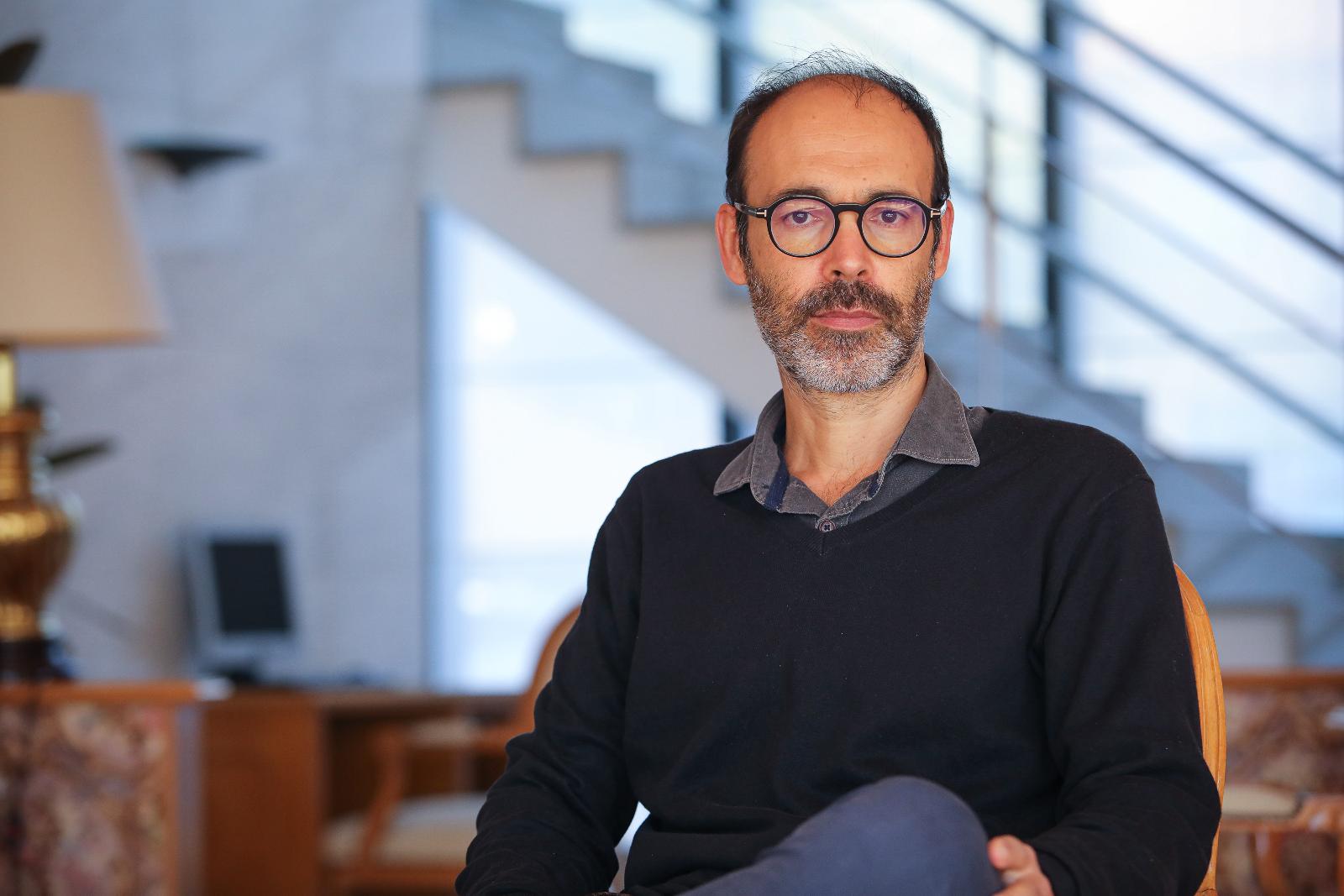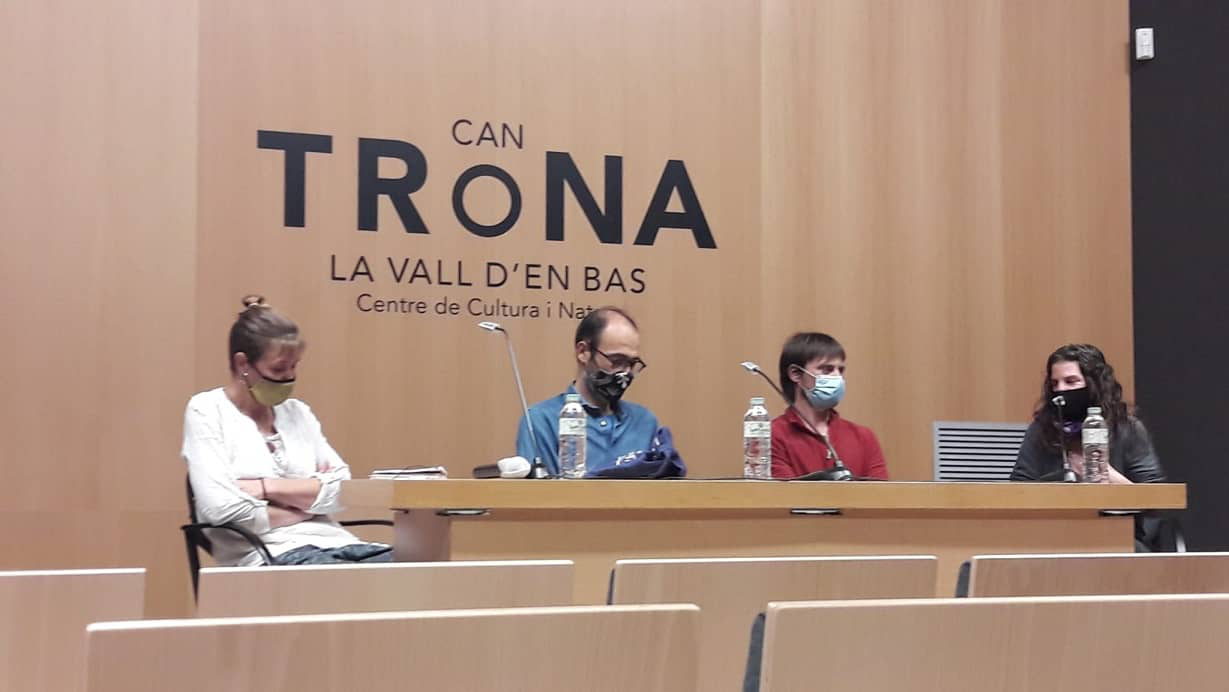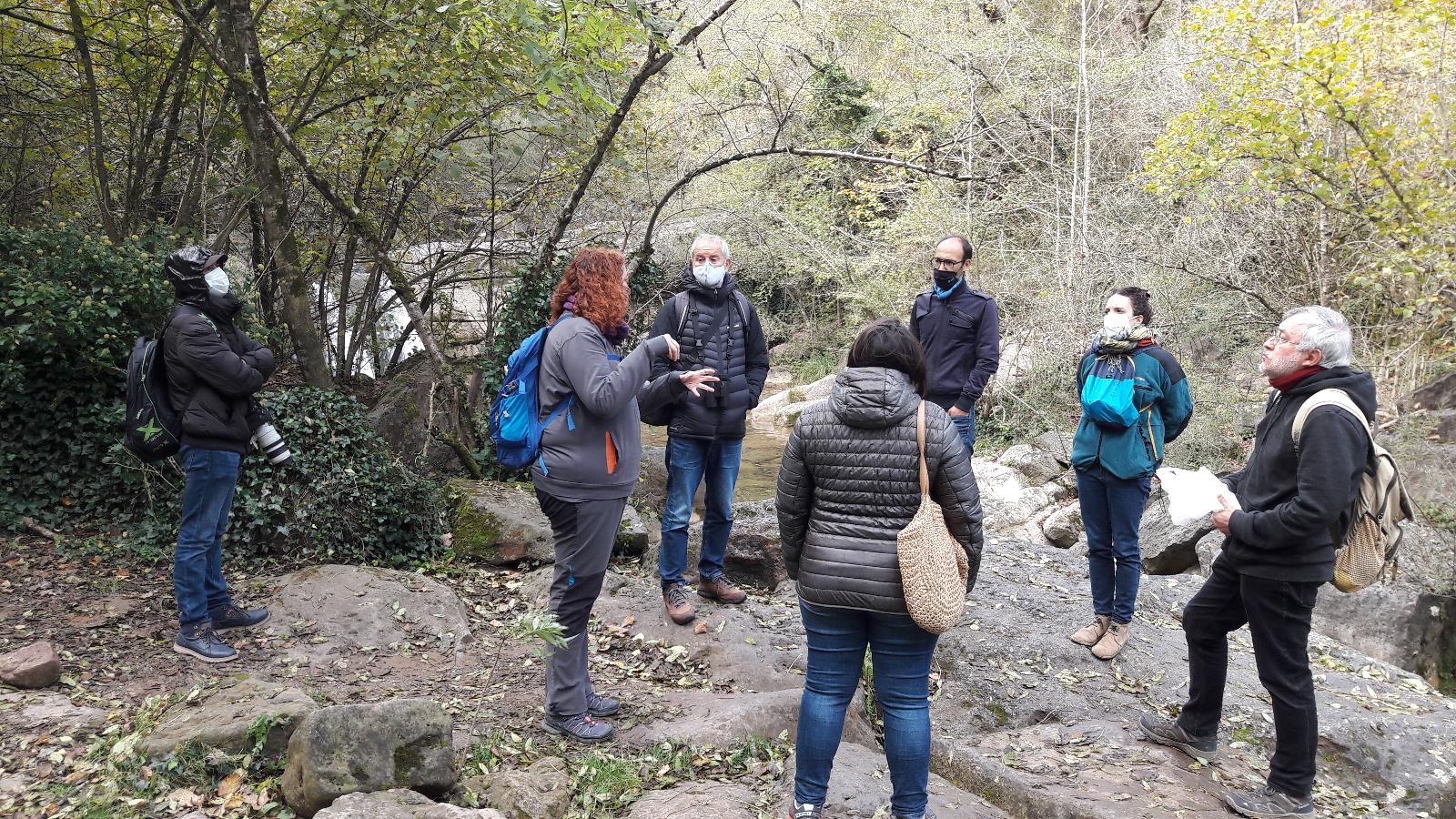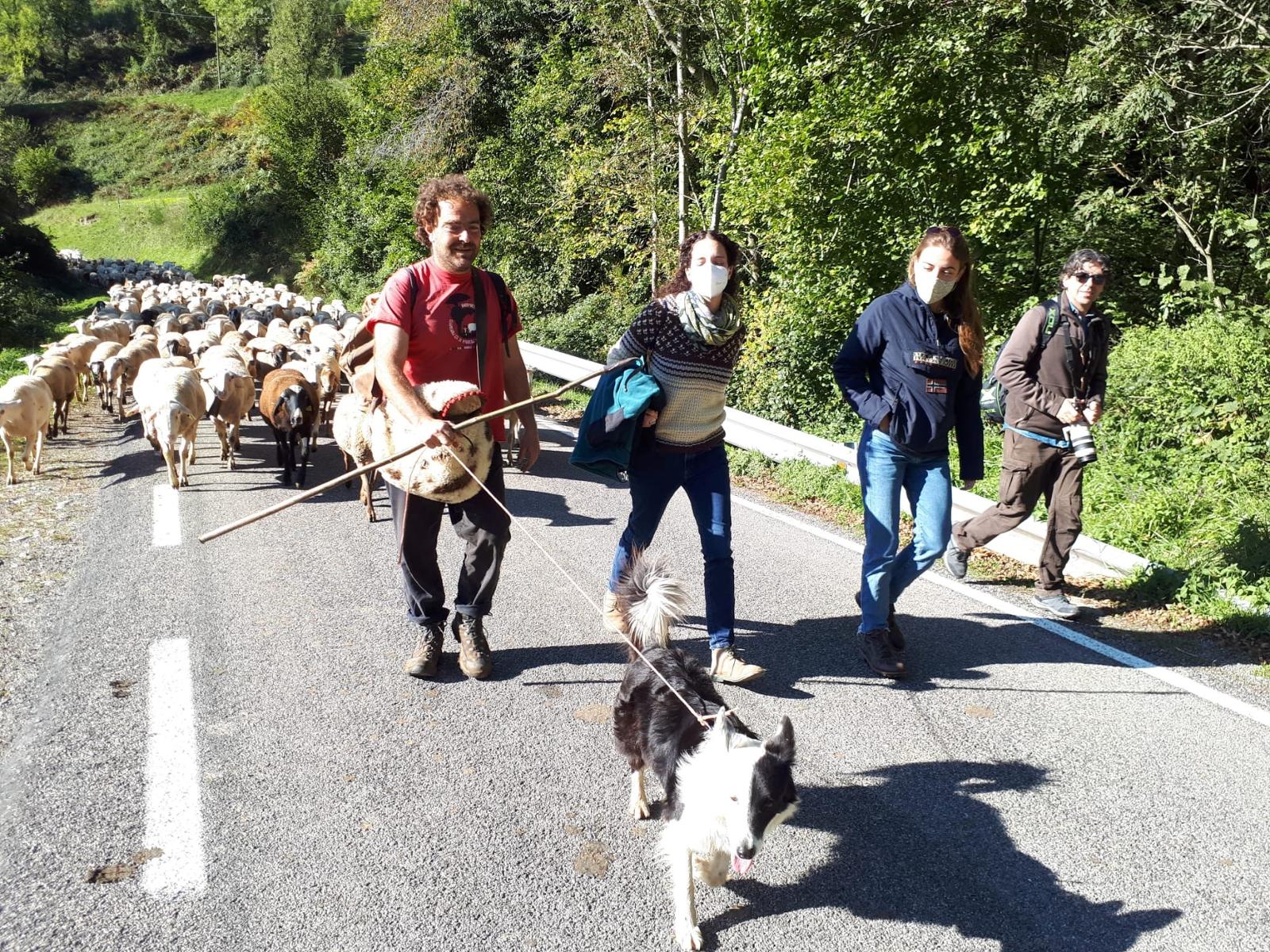Collective residencies / LITERNATURE / Olot
GABI MARTÍNEZ
From Tuesday, 13 October 2020 to Friday, 23 October 2020

Bio
Gabi Martínez (Barcelona, 1971) is a writer. In 2020 he has published Un cambio de verdad, based on his experience as a shepherd in La Siberia Extremadura. His latest novel is Las defensas, chosen among the best of 2017. En la barrera and Sólo para gigantes were chosen as the best non-fiction books in the Spanish language in 2012 and 2011 respectively. Sólo para gigantes was runner-up for the Valle-Inclán Prize awarded by The Society of Authors in London for the best translation from Spanish to English. All its work makes singular attention to the relations between the individuals and the environment, the landscape, the physical surroundings. This is how he came up with the project Animales invisibles, about which he has published a first book and is working on two more. Some of his other books are Voy, Los mares de Wang, Sudd and Una España inesperada. His work has been translated into ten countries.
He has co-written the docuficcions Ordinary Boys and Angels & Dust.
He is a founding member of the Asociación Caravana Negra para la difusión de la cultura y la naturaleza (Black Caravan Association for the dissemination of culture and nature) and of the Fundación Ecología Urbana y Territorial (Urban and Territorial Ecology Foundation), which defends the establishment of superblocks.
Project
In the residence I will work on the second volume of the project Animales invisibles, which I am developing with the archaeologist Jordi Serrallonga. I travel around the world in search of difficult animals —or impossible— to see because they are mythical, extinct or very few remain, with the idea of explaining to them their environment. To Faber I will write about the last trips in search of the evil (marsupial of the Australian west coast), the lion-tailed macaque (Kerala, India) and the mylodon (Argentinean Patagonia).
The Faberllull Olot residency achieved something unexpected: truly making us forget the pressures Covid is putting on our daily lives. Although we had to respect the necessary hygiene measures, the days flew by filled with work, public events, excursions and chats with other residents.
In terms of the work, as I had set out to do, I've developed the structure for an upcoming book on invisible animals, focusing mainly on the North Atlantic right whale. Plus, I completed a radio script based on my book in which I research the life and murder of a Valencian zoologist who lived in Hindu Kush for fifteen years. They were days of perfect concentration that kicked off with a group breakfast before I buckled down to write. At lunchtime, I went on excursions with the other residents, alternating between volcanoes, the city of Olot, forests and natural spaces like la Moixina. We thoroughly enjoyed the landscapes, and were lucky with the weather. On top of these trips, we also went on others led by local guides like shepherd Toti Juanola, who took us to the pastures where his Roja sheep graze; the hike with the team from Can Trona, who showed us Vall de Bianya, a valley full of pools, yew trees, fountains, etc.
The combination of work and nature was balanced, stimulating, encouraged by ‘al dente’ weather that, in a way, helped create a more relaxed, even affectionate, feeling among the group.
In terms of specific events, at the Landscape Observatory in Olot I found books that will help me with a project on words about nature that I have in mind; in Barcelona, I presented the book Mudanza del isonauta by my fellow resident Jorge Riechmann and finished off the residency presenting my own latest book, Un cambio de verdad, at Can Trona, with a panel discussion featuring three livestock herders from the area (Alba Roquer, Gemma Vila and Miquel Vila), after another one, Marc Muntanya, who kicked off the event performing two songs.
I would like to highlight that Faberllull held a press conference led by Francesc Serés, director of Faberllull, and featuring Mayor of Olot Pep Berga, Faberllull Olot Contents Manager Pepa Pasamón and myself. We took stock of the work carried out in four years at Faberllull and presented the Liternatura residency. Everyone seemed to be satisfied, even the journalists.
The food was healthy, restrained and good; the hotel staff pleasant and respectful. They made it easy to get to Barcelona and gave us bus tickets so it didn't cost us a thing. What more could we ask for? Ideas flowed at a good pace, inspiring everyone to share their own and giving rise to future plans that will surely bring more than a few of us back together.
The most valuable, the positive reaction from the people who participated in the events held, trying to promote initiatives to reflect creatively on the relationship between art and nature.
This residency was the first -seemingly in all of Spain- to bring together writers who make nature the main character in their texts. It has opened doors to carry on in this line, and to raise awareness of the work using a word of our own to refer to this type of literature instead of the English term nature writing: liternatura
Promoting this sort of activities, where writers -or artists- mingle with the local population working with nature, seems like an excellent way to encourage both sides to share ideas and experiences that help raise awareness of jobs, sectors, people who are doing a great task that is often overlooked.
By encouraging this art-nature alliance, we can turn media attention towards exciting, healthy and probably creative proposals that can help change how a great number of people look at art and nature itself.



